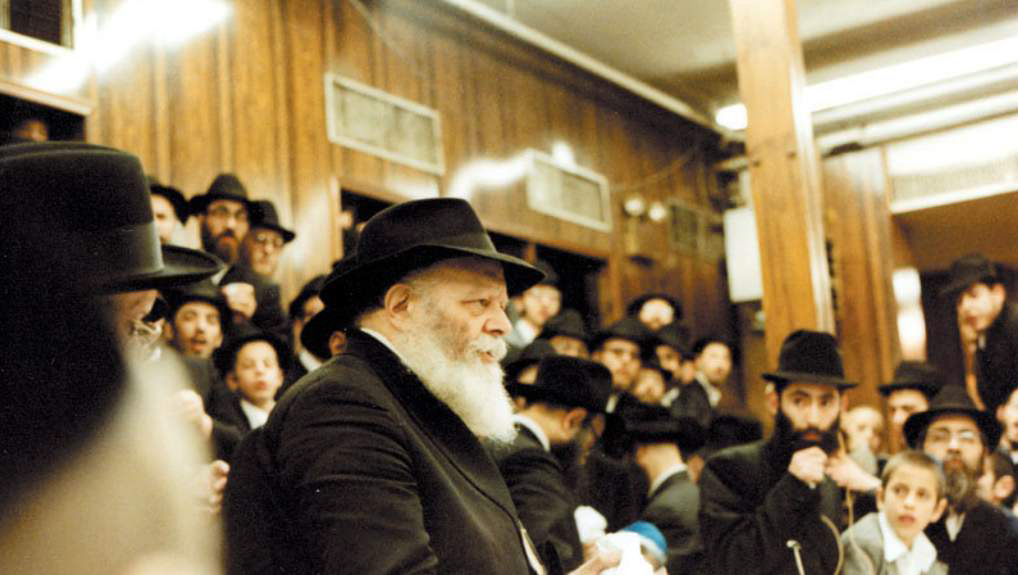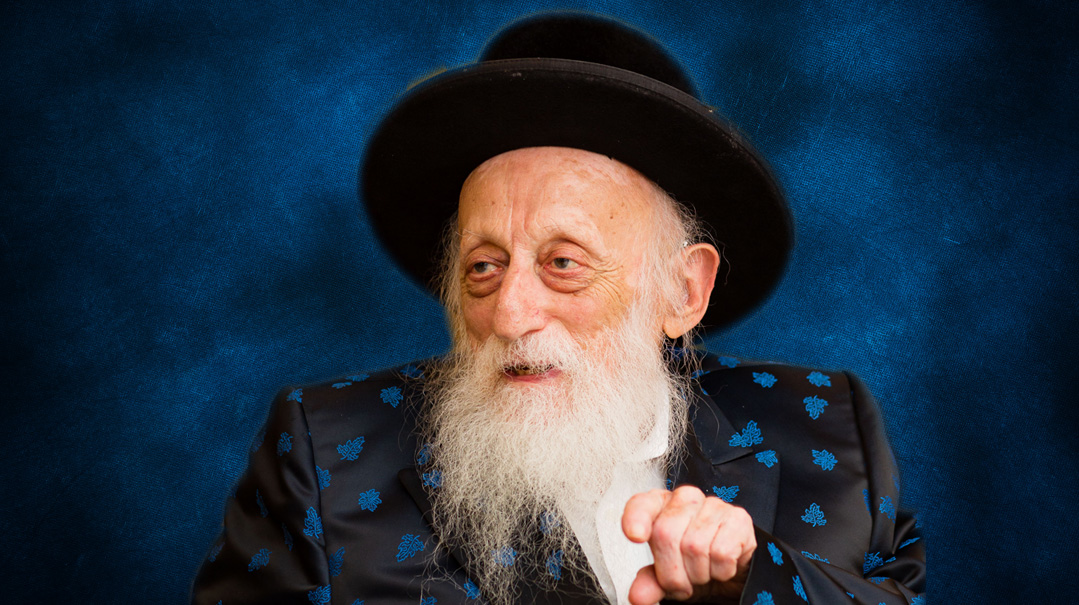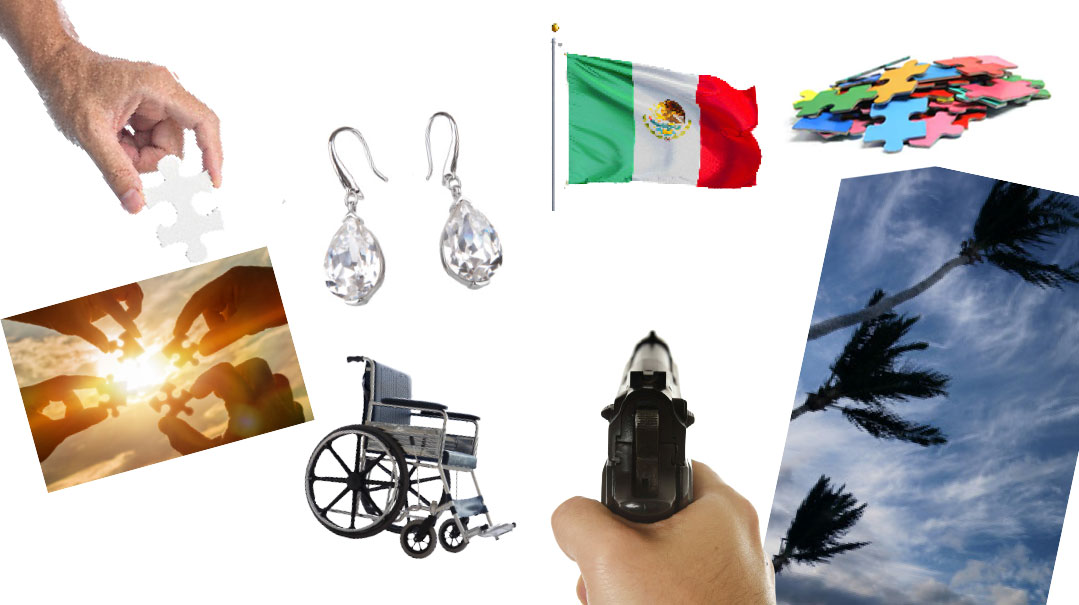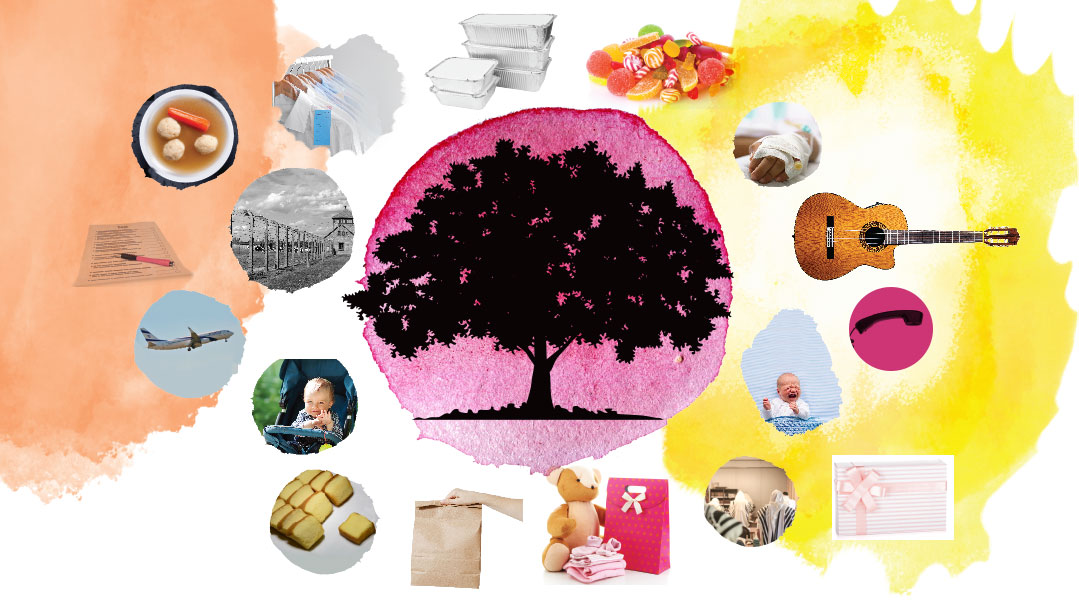Parallel Journeys

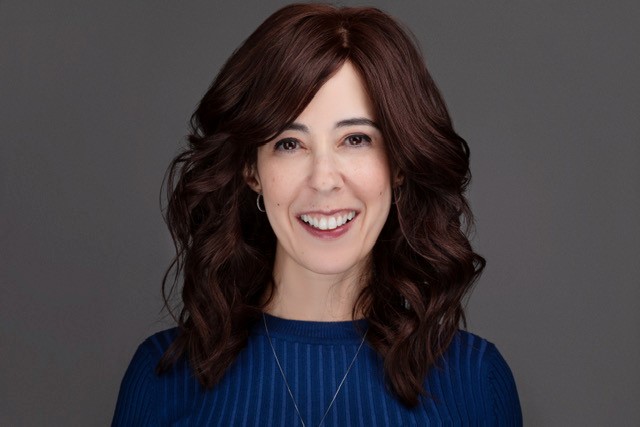

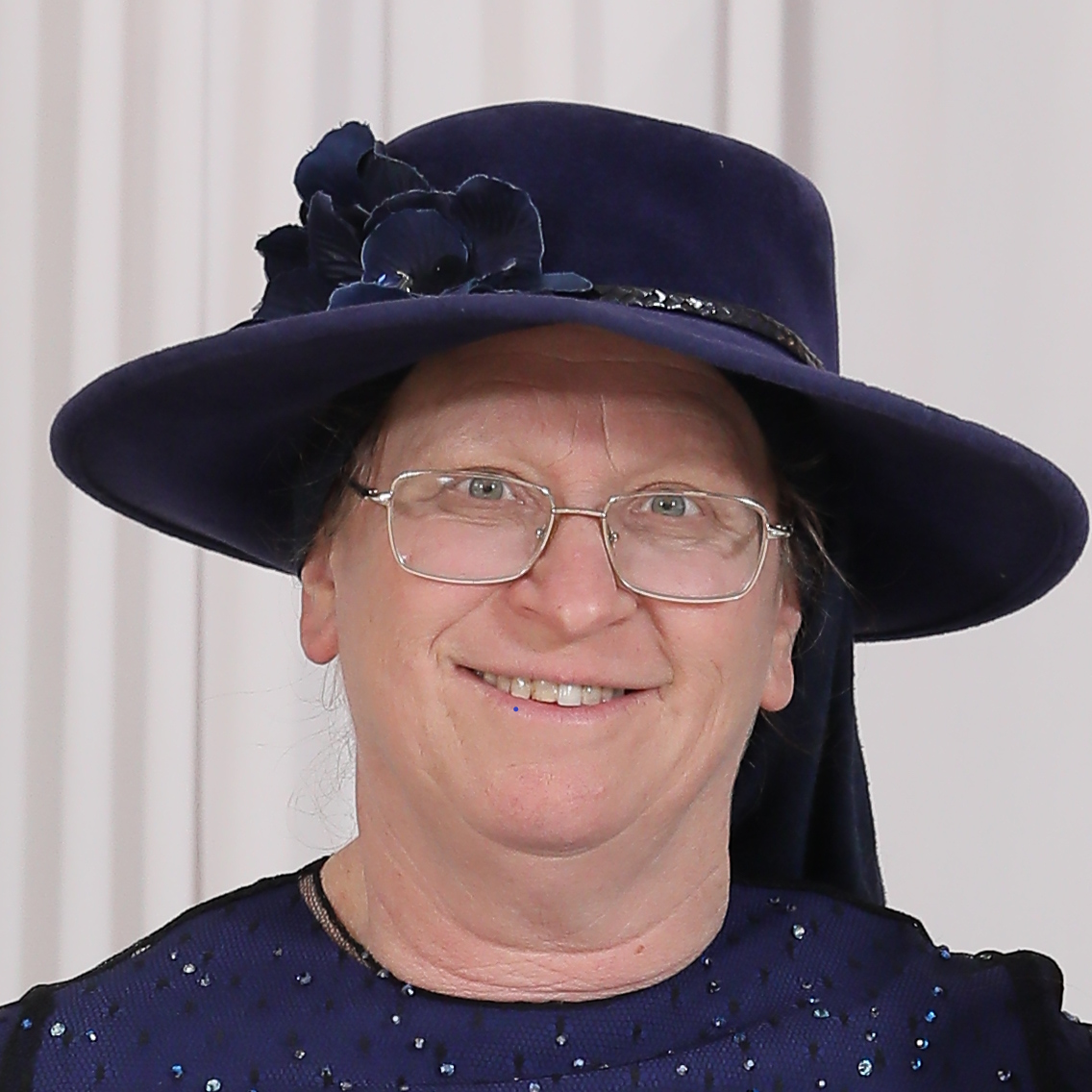





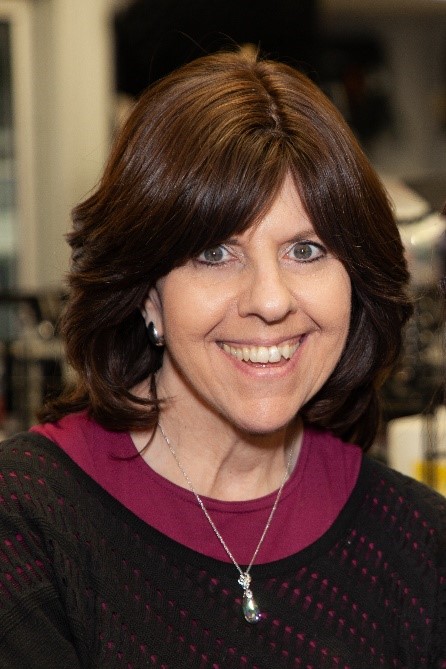



WAVES OF MEMORY With the years came introspection. Memories of two little girls giggling on the pinkish-gray carpet of teens fighting for space at the mirror of two young mothers pushing babies in the swings; they kept washing over me and receding strong waves and weaker ones salty like the ocean and tears
A
Split in the Road
As Told to Faigy Schonfeld
When I opened my closet the night before first grade the scent of Downy Rose powder-like drifted from the shelves. Two starched shirts two green cotton sweaters two plaid uniform skirts two pairs of patent leather shoes smooth and new.
It was like a picture of our lives my big sister Etty and I. Neatly lined up matching in pairs fresh happy and better together.
I had friends throughout the years and they were great but Etty was always first. We dangled our feet off the matching trundle beds spun identical fantasies as the late afternoon sun spilled gold across the carpet.
Etty was slender dark hair creamy complexion. Soft-spoken and delicate she spun through life on feathers swathed in pastels and grace.
Each morning I would sing as I brushed my hair by the mirror while Etty would groan from under the covers. Then she’d come down to breakfast with my brush and insist on redoing my pigtails the proper way. Etty made the best coffees and invariably I would finish hers when she slipped upstairs to get her bag.
We walked to school together in the chilly winter mornings in the flowering warmth of late spring. We argued about most things laughed over everything. Later sprawled on linen flecked with gray flowers or ruffles of peach we’d discuss school the world’s problems and our future lives then stay awake for hours reading by the light of the moon.
We came of age in the little room nixing each other’s purchases and swapping clothing. We talked long and hard about who we wanted to marry and how odd it would be for us to live separate lives to have a wedge between us.
They didn’t come quickly those husbands. But while other single friends endured the shadow drape of loneliness our days were bright and full. We worked together traveled the world on business shared our yearning and frustration over tea nuts and chocolate on late Friday nights. Sometimes we had such wonderful discussions and laughed so much that we’d sit on the green velvet chairs that surrounded the Shabbos table until the sun rose.
And then it happened. Etty got married so did I. Things were different of course they were but we still ambled along on the same journey intertwined... (Excerpted from Family First Issue 537)
How the Other Half Lives
Esther Kurtz
I looked at the receipt and shook my head then shrugged and put it away.
“What?” my mother asked.
“She only charged us $65.”
“And?”
“Well it should have been at least $72 before taxes.”
“That’s nice” my mother said lightly. Clearly the discount was no surprise. And that’s why I love going shopping with my mother (well in addition to the fact that she invariably ends up paying for something). My mother has friends — shopkeepers business owners dentists and who knows who — and when I go places with my mother I get a discount or an appointment that’s suddenly available and who doesn’t love that?
My mother is very proud of her “yichus atzmi” as my grandfather dubbed it. You’ve probably never heard of her; the only one writing articles about her is me. My mother’s superpower is her extroversion. She loves people. And they love her right back hence all the discounts.
Her favorite game is Jewish Geography and she always wins. I joke that my mother knows everyone but I often feel like I’m not joking just speaking a universal truth.
And then there’s me. I’m an acquired taste not like coffee or wine more like a Scottish haggis. Even my husband tried to say no after our first date. I try being warm and engaging like my mother but even if I use her words I come off as stilted and maybe a little manipulative. It’s like I know the magic words but I’m obviously not waving my wand right… (Excerpted from Family First Issue 537)
End of the World
Gayil Rose
I’m peeling potatoes and my eyes are raining. My younger sister-in-law just had a baby and I’ve been crying over my half-prepared supper since the phone call came.
I was scheduled to have a pretreatment test today and I couldn’t even get it done because of a minor allergy I mentioned that sent my doctor into a tizzy. We rescheduled and I will be back at the clinic for the test tomorrow. Same time same place. Again.
I know we all have our journeys but right now the differences between my sister-in-law’s and my own seem so stark. I can practically see our separate cars flying on the highways of life roaring off in opposite directions.
I struggle to make sense of that of my empty little car with a mind of its own.
But then I look out into the highway and there’s another car just ahead. I know that driver I met her one night not long ago. And now we drive parallel as we travel this ever-quieter stretch of road.
*
A while ago I decided what the end of my world would look like. It involved a round table decked in a silk tablecloth and adorned with flowers my friends from school and conversation I could not be part of. With all I was going through it’s almost ludicrous that this was the scene of my nightmares. But somehow that image complete with the faces of my peers was worse than everything else…
I got married pretty early. Life was good. It was a while before I noticed we were different. Women who had married months after me were showing up in maternity. The first few “It’s a girl!” text messages and visits where blanketed bundles took center stage were nice exciting. I joined my friends’ simchahs with happiness if tinged with concern… (Excerpted from Family First Issue 537)
My Father’s Song
S.T. Agam
Eliyahu Hanavi one hundred and thirty times in a row?!
Our litvish husbands had never heard of the song that never ends.
As children we’d join in. As teenagers we’d find it a little tiring and frequently space out. And as adults well… But every so often we’d visit on a Motzaei Shabbos and join my father as he sang the interminable song. Every week without fail my father would sing it with pathos with joy with yearning — with true Yiddishe taam.
There was a straightforward logic to the tune. It played in a loop with ten mentions of the prophet in each. If you counted 13 stanzas that’s it; you were done. And all the blessings Eliyahu Hanavi could bring would descend upon your house for the week I suppose. (I never thought to ask what the segulah was for).
Still we don’t sing it these days.
*
It’s Motzaei Shabbos again. We’re heading home from a jaunt to Yerushalayim when my cell phone rings. I don’t recognize the number. It’s the head nurse on the ward at our relative’s senior citizens home. His speech is a little slurred and his hand is drooping badly the nurse tells us. “We’d like to send him to the ER to rule out a stroke. Someone needs to accompany him.” Obviously. And he needs someone right now. We take the first possible exit off the highway and drive quickly back to the home updating the rest of the family by phone on the way.
Half an hour later after dropping off my husband I’m careening down the intercity highway alone. Vehicles whoosh by scattered stars twinkle across the still night sky. A host of painful thoughts press on my mind jostling pushing to be heard. Too painful.
Between my concern for our relative and memories of the countless times we rushed with my father to the hospital before he passed away this autumn my thoughts scatter sideways dissipating into the chilly night air. In a flash one lone unbidden realization sears itself across my brain. It’s Motzaei Shabbos.
Out of nowhere like the soft touch of a worn angora scarf wrapping itself around my shoulders a vintage image cradles my heart… Daddy sitting at the kitchen table. Two flimsy tea-light flames meander up to the Heavens in honor of Dovid Hamelech and Daddy raps the table with the heel of his hand tapping a march to “Eliyahu Hanavi.”
Unable to stop the tears from soaking my face as I drive I open my mouth and as I cry I sing. I sing and sing. And I count the times — 13 in all — that I sing the cyclic tune that Daddy always sang. I’m singing and I’m crying and I’m driving. Angels must have watched me for sure because I could hardly see for tears... (Excerpted from Family First Issue 537)
Twisted Ties
As told to Batsheva Eichelberg
Ten minutes left until the global regent. The Byzantine Empire — I don’t know this part. I skim my notes frantically committing names and dates to memory.
That’s when Tzivy breezes over. “Oh perfect! I should probably read some of this stuff before the bell.” Tinkling laugh flick of bangs. “You have such amazing notes.”
“I’m not done here Tziv.”
Blue eyes roll the same eyes that view top scores as significant only if they’re effortless. “Oh come on. I bet you can recite your notes backward by now.”
My cheeks are on fire. True I’d studied for hours. It’s a lot of material and I want to do well. So I fried my brain cramming while Tzivy allegedly partied and now my limp hands relinquish my notes to her. It’s only fair. She’s my best friend.
The grades come in. I score three points higher than Tzivy. She snorts. “Marks…”
Snort until tomorrow I know she’s green inside. Brains charisma luck — these things matter in high school.
When I’m elected G.O. president she tells me how sorry she feels for me how our school chooses girls who need a boost. When I’m honored as valedictorian she mocks clichéd graduation speeches. I know she does it to mask her envy. The two of us teeter at the top of the class — socially academically even spiritually — and we’re neck and neck at the summit… (Excerpted from Family First Issue 537)
Lost in the Woods
Esty Mandelbaum
One of my favorite childhood places was the forest outside town. I’d tag along with my brothers. We’d find a clearing and eat a picnic lunch then spend the rest of the afternoon climbing trees playing and helping each other up when we fell into piles of leaves or mud. We’d pretend to get lost and run through the trees trying to find our way back to the parking lot panicking and rolling with laughter all at once.
Little did I realize back then that the years would pass and I’d one day meander through the thickets of my soul never knowing if the next step would take me forward to freedom or backward to disaster.
I grew up the only girl in a house full of boys where learning Torah all day was the one and only thing that mattered. Questions were encouraged with one proviso — you had to be a boy. Good girls don’t ask I was told. Good girls follow what they are taught and then raise their own kids to do the same. When a boy asks it’s a sign of brilliance. When a girl asks it’s a sign of weak faith.
But squelching my curiosity and thirst to learn repressing those queries caused me to start questioning the very path I was on to shun the light I basked in.
I started scratching at the niggling feelings I carried throughout my childhood. Unbeknownst to me my doubts in emunah simply stemmed from a misconception of what emunah really meant — doing what we are tasked to do with the information we’ve gained through learning while always understanding that we can never know it all.
In the darkness of my own forest I slipped and landed in the undergrowth. I didn’t understand the magnitude of doing something seemingly as banal as switching on the air conditioner or applying makeup on Shabbos so I did it. I was sure the Shabbos candles on the table would never be diminished by my breaking the code of law.. (Excerpted from Family First Issue 537)
One Final Act
As told to Chaia Frishman
That night some of my family sat in a small simchah hall in Boro Park celebrating the sheva brachos of a relative. And some of my family stood guard at my father’s bedside in nearby Maimonides Medical Center where he’d been a patient on and off for the past 18 months. The juxtaposition of emotions a microcosm of life cycles.
Our family was no stranger to Maimonides. As one of the first frum families living near the hospital our home was a headquarters of chesed for many people there. My father’s walk home from shul Friday night always included a stop at the emergency room to corral some last-minute visitors. It was common for us to have ten extra guests for meals some even staying for weeks at a time.
But now my father was frail and spent. That night we knew the end was imminent. There was no longer any discernible brain activity nor could he be fed even by G-tube because his digestive system was shutting down. Maxed out on medication to stabilize his blood pressure my father’s deterioration was swift.
As the evening wore on the room filled with family from the sheva brachos. We said Shema and Nishmas and watched the number on the monitors reveal the impending flatlining of his heart rate.
Suddenly my father’s pressure stopped dropping. A religious physician’s assistant who was assigned to our family for that shift was dumbfounded.
Meanwhile from the room next door emanated a cacophonous medley of cries screaming and harsh words. “There’s no reason for Jewish burial!”
My cousin Leibish ran to see if he could help.
The nurse on call familiar with the Jewish concepts of sanctity of life and death solicited his assistance. “Please explain to the family why they should not arrange for their mother’s cremation.”
Leibish asked them what was holding them back. “Ach it’s so expensive to bury. Why not cremate and be done?” I worked with the chevra kaddisha. A few phone calls and the impediment of an expensive kevurah was out of the way. They acquiesced.
My cousin Leibish quickly returned to my father’s side to report the proceedings. He turned to me: “Gitty run go do the preparation for the taharah.”
“But Tatty… I can’t leave!”
“Just go. Once the taharah is started they’re less likely to change their minds…” (Excerpted from Family First Issue 537)
Head and Heart
As told to Esther Ilana Rabi
BRUCHI: It was natural almost automatic that Sara and I became friends. It didn’t matter that Sara is from Johannesburg and I’m Australian. In the Southern Hemisphere we have summer vacation while Americans are in school. That meant that our group of Neve newbies was smaller than most so we met almost as soon as we landed and very soon felt like sisters.
We were both vanilla-cream good girls. Our parents had taught us to always try to do the right thing. Their values were Torah-based — tzedakah Friday night meals and the importance of marrying Jewish — they just didn’t know they were in the Torah. So what we learned in Neve wasn’t new and radical it was more like finding the missing pieces to the framework of a puzzle. It helped us put everything in place.
We both planned our own weddings making plenty of mistakes on the way. Like when Sara ordered pink and red carnations — what was she thinking? — and overpaid for them too. But afterward we helped our Neve friends through the process giving them pointers and the phone numbers of wedding-dress gemachs caterers and bands.
It was fun but it was taking up more and more of our time. So when a photographer said that he got so many wedding jobs from us that we ought to make referrals a business his suggestion fell on fertile ground. We both had business backgrounds and felt ready to start a wedding-planning business together.
Only together though. Who could do it alone? We have different strengths. I’m good with numbers but I can’t create floral masterpieces like Sara can. I don’t have her color sense and the attention to detail that makes the decor not just good but wow! We bounce our problems off each other and rely on each other for support.
SARA: We had found our niche in the wedding planning business but soon Bruchi’s place in the puzzle began to shift. Her husband met Reb Zvi Meir Zilberberg shlita a chassidish rav who has a wide cadre of loyal followers. Bruchi and her husband began to study chassidus; it wasn’t long before they were taking on chassidic minhagim and learning Yiddish.
The changes over the next years were astonishing. They moved to a chassidic rabbi’s model community and immersed themselves in experiences that were foreign to me like going to tishen and to Meron on Lag B’omer. They davened all day on Rosh Hashanah with only a quick break for a meal. That was beyond me too intense. Yiddish story tapes were always playing in their house and colorful ethnically diverse Shabbos menus were replaced with classic chassidishe fare.
Bruchi explained to me that food has an impact on us. Just like we associate apples in honey with Rosh Hashanah chassidim associate farfel with Shabbos when we let anything upsetting that happened during the week be considered “farfallen ” fall by the wayside.

Ours is not postpartum depression or midlife crisis. Instead it’s a complete roller coaster a chemical upheaval turning an otherwise sane individual into a raving lunatic — the madwoman in the attic whose presence haunts Jane Eyre. (Would Mrs. Rochester have been normal if she’d had access to medications?)
When she said that I decided to go the heimish cooking route one Pesach. I figured no one would go running to the Mishnah Berurah if I cooked chassidishe-style. When I called to ask Bruchi how she peels peppers because I was trying to be stricter she told me they don’t eat peppers on Pesach.
What do you eat? I asked.
“Potatoes and eggs” she answered.
So I gave up and on Pesach my family enjoys smearing all sorts of things on their matzah all week.
That’s how it went step after step. Bruchi explained every change never leaving me out of the loop. Nothing felt like a major departure from what we’d learned at Neve but they built upon each other. I’m not sure it even occurred to Bruchi how much they’d changed until their first son was born... (Excerpted from Family First Issue 537)
Blood Brothers
As told to Faigy Peritzman
“I guess this makes us blood brothers.” Justin looked solemnly down at their fingers now scratched and bloody from the bare branches of the oak tree they’d just scaled.
“Aren’t we blood brothers already? I mean we are brothers.”
“You’re so lame Jonathan. This makes it real. A pact. Now we have to promise solemnly that we’ll always stick together no matter what.”
“Uh sure. Right. No matter what.” He linked his fingers with Justin’s and promised.
There wasn’t much opportunity to part ways. Only 15 months apart Justin and Jonathan were inseparable. People often assumed they were twins and they never bothered to correct them.
Justin was the leader: fearless feisty and full of life. Jonathan followed glad he didn’t have to make the decisions reaping the benefits of Justin’s superior skills.
Years of living in the Midwest taught them both survival and a love for the great outdoors. Family biking trips white-water rafting cross-country camping — the boys were encouraged by their parents to think quickly and use their skills to survive independently.
“Gotta use your mind think on your feet ” their dad often said. “Don’t rely on anyone and you’ll never get the rug pulled out from underneath you.”
Justin graduated first. Quarterback for his high school team he had a generous scholarship waiting for him at Oklahoma State University.
Jonathan spotted the brochure one evening as he was looking under his brother’s bed for his hiking boots. “What’s this Birthright business?” he scoffed tossing the pamphlet on Justin’s bed. “You plan on pulling oldest son’s rights on me?”
“Nah just a trip backpacking this summer. Gary and Drew are going. Thought I would too.”
“Cool! Hanging around Europe?”
“Nope Israel.”
“Israel? Whatcha want to spend time there for? Way too many terrorists.”
But the prospect of hard hikes and heady adventures propelled Justin to the tiny land… (Excerpted from Family First Issue 537)
Takes One to Know One
Devora Loeb
I know who you are. I recognize the signs when we meet at a simchah the supermarket or at PTA.
On the surface we seem so different. I’m a workaholic you’re a stay-at-home mom. My husband is an accountant yours learns in kollel. I’m a lot older than you and so are my kids. We really have nothing to do with each other.
But I know you. I know your eyes am attuned to your struggle. I can recognize the signs the pauses in your conversation the omissions in your chitchat.
It takes one to know one.
We’re both distinctively successful in our lives. Most envy us the single minded-passion we give to our jobs our family ourselves. We look like the type who has it all together.
But no one knows that our psychiatrists are our best friends.
We women are a chatty lot. We discuss war stories hair-raising births child-rearing woes and even health issues as we mill and meet over coffee and at the pediatrician at the gym and at a kiddush. We bond easily share easily empathize easily.
You and I we shoot the breeze as well. Contribute this tidbit that tale. But all the time our brains work overtime trying to maintain the illusion while not betraying any of the turmoil.
Our horror stories are a bit more horrific often including graphic details best not shared with the public. The milestones that others take for granted — pregnancy childbirth even hitting that transition age of 50 — is laden with mines for us. The potential danger of losing our minds... (Excerpted from Family First Issue 537)
Fired Up
Margie Pensak
Laden with bags from the butcher the grocery store and the farm lady’s produce truck my husband Stewie elbowed his way through the door. “Hi! I’m back!” he called. “I bought a really big watermelon for the barbecue we have plenty of hamburgers and hot dogs. Let’s invite some neighbors.”
“The more the merrier!” I said matching my husband’s enthusiasm over our standard May-to-November Sunday fare.
As Stewie started fussing in the kitchen three-year-old Zevi stood tippy-toe on a chair close to his side. Eager to help he stirred while Stewie shucked the corn. Our eldest ten-year-old Shimon was in the living room taking inventory of his stock of novelty toys for an upcoming yard sale while his six-year-old brother Yehuda played baseball on the front lawn with potential customers. I had the easier job — entertaining one-year-old Dovid while Stewie did his chef thing.
After dinner as I cleared the table I heard my sons’ raised voices. The argument was escalating. “Boys ” I gently reminded them “you’re not getting along now but you’ll see — when you grow up you’ll be best friends..” (Excerpted from Family First Issue 537)
Mothering Me
Sarah Silverman
You should be feeling something. Joy love connection. What kind of a mother feels nothing? You are a failure. You’ve failed your daughter. She’s just been born and already you’re a terrible mother. Why did you ever think you could be different?
I sit with my week-old daughter Baila in my arms. Excited babble of family and friends fill the room. But all I hear is a thundering voice of condemnation. Every time I look at the baby and I don’t feel what I should the voice screeches. Every time she doesn’t respond to my attempts to calm her the gavel bangs.
I desperately want to love her.
But I don’t know how.
You just need to get out alone I tell myself. It’s too intense for anyone to be with a newborn all day. I call my sister to watch Baila and I go to the mall alone. But the voices follow me; even more deafening than at home.
You’re just like your mother was. Leaving your baby. Neglecting her. Being selfish. Running away from your children. Your baby will end up like you. Emotionally deprived empty bereft. A lifetime of pain and loneliness. You should know better.
But I know nothing. I change diapers and wash her tiny limbs. But no one taught me how to love.
Over and over I search inside me. But I come up empty. How does every other mother do it without trying? My mind obsesses. What is enough what is too little?
If she cries it’s because I’m not doing it right. If she looks at me she’s telling me that she knows how terrible I am. She’s a reflection of my failure.
Of course I don’t want to be around her so I run.
A new voice whispers faintly. There has to be another way. Your daughter deserves more. You deserve more.
My friend hands me a piece of paper with a number on it. She can help you my friend promises… (Excerpted from Family First Issue 537)
Oops! We could not locate your form.







